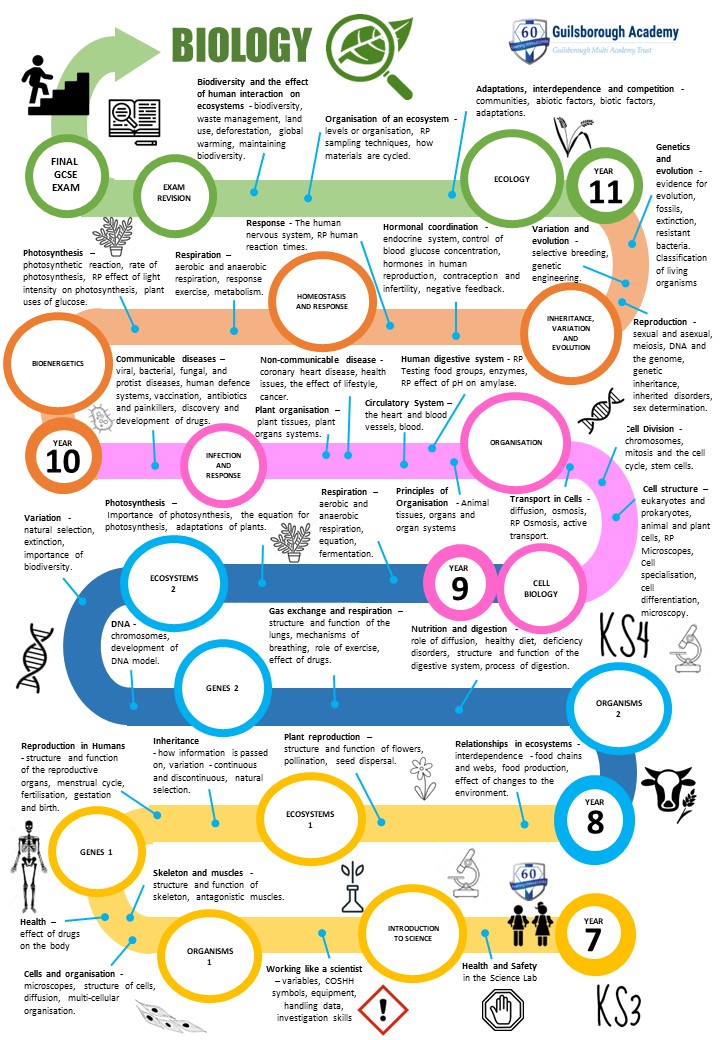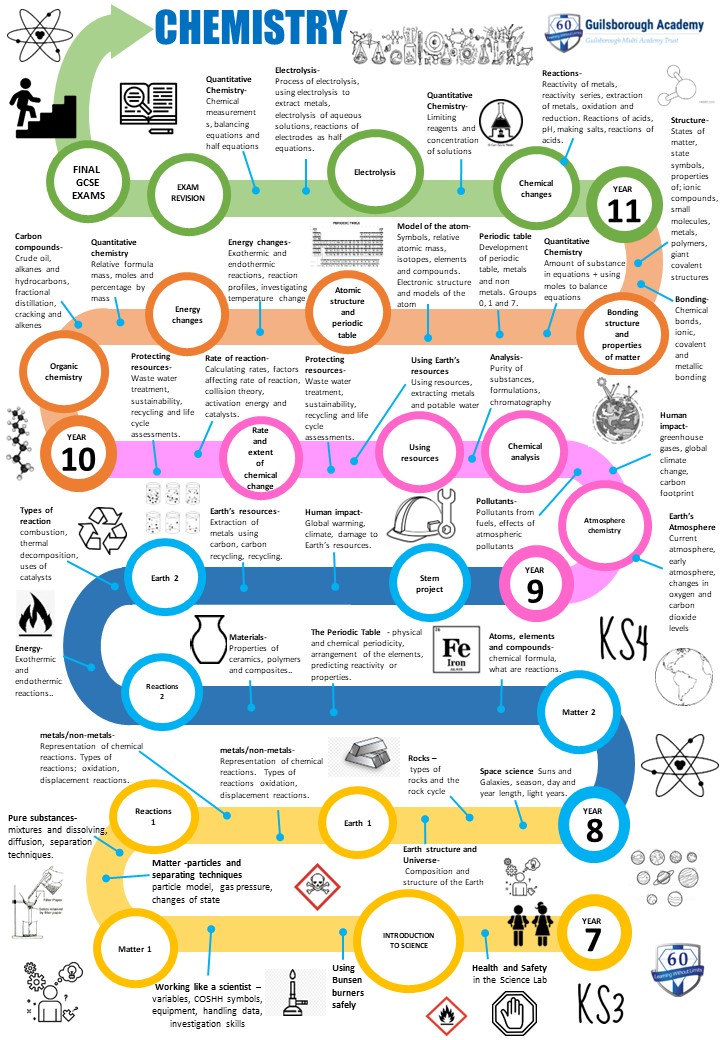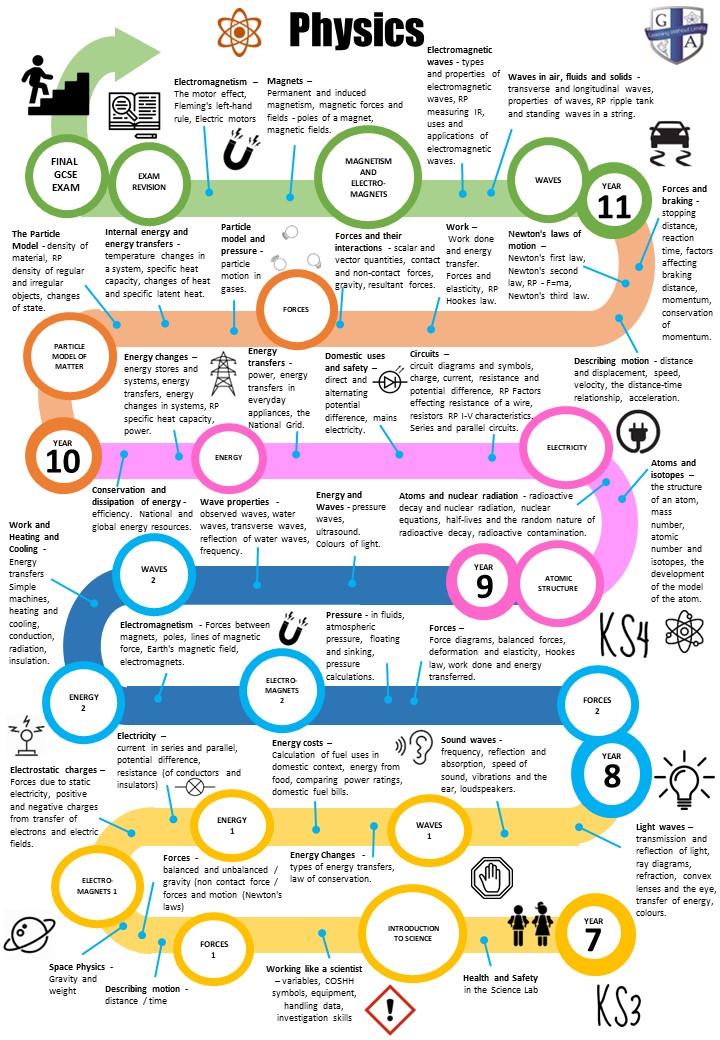Science
We live in a world that is dependent on science and technology. Our aim at Guilsborough Academy is to give every student the tools needed to not only make sense of that world but also be able to adapt and embrace the changes in science that will happen during their lifetimes, without fear or prejudice.
Our Curriculum
Our Science Curriculum is built around the need to acquire scientific knowledge and understanding in order to be scientifically aware of the world around them.
We build upon the natural curiosity students have to explain their observation about how the world works, and over the years develop greater breadth and depth of understanding of key topics, hoping that our students become scientifically literate and numerate and develop a love of learning more about the world they live in.
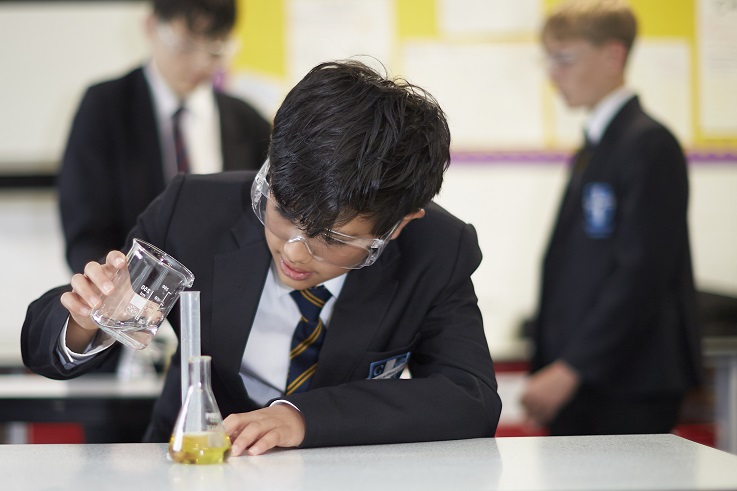
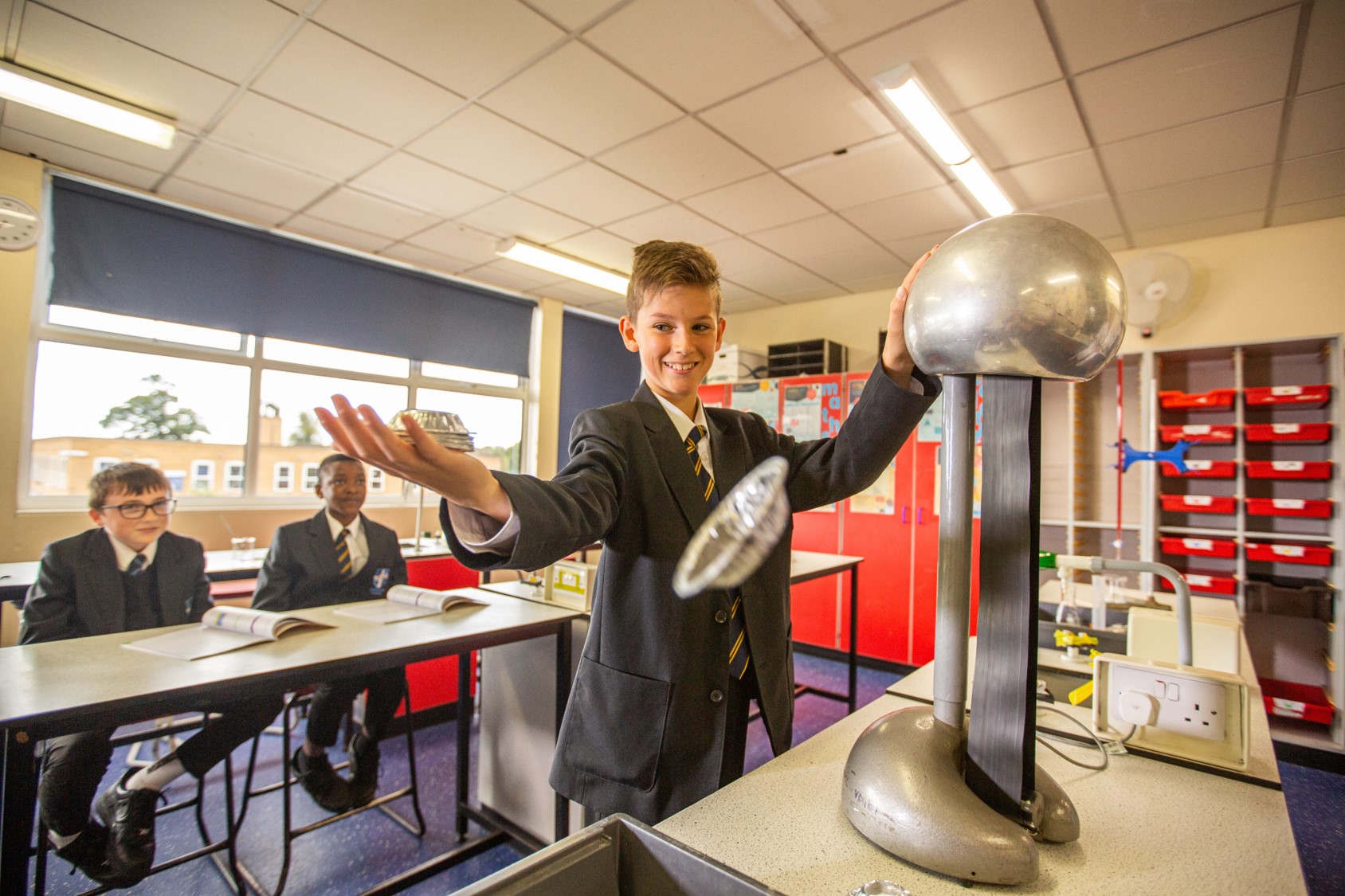
GUILSBOROUGH SCIENCE DEPARTMENT VISION
For staff we want the science department to be a place where we can thrive as individuals, can get support when we need it, can feel a sense of pride in what we do and enjoy our time at work. As a team we work together for a common goal.
For the students we want to provide a clear, engaging and comprehensive curriculum, to help all students achieve their potential, to obtain the best exam grades and support their scientific development so they make informed choices.
By working together we follow the school ethos of Learning without Limits to deliver the RARE school values and the science department vision of SPICE.
SPICE
Support for scientific development
Pride that we reach our potential
Individuality to be able to make informed choices
Common goal to provide a comprehensive curriculum (which brings)
Enjoyment and great exam success.
|
Guilsborough Academy Vision |
How we embed this in science |
|
Responsibility
|
Responsibility To do this we provide opportunities through our SOL to learn about and discuss important global and national scientific issues. We promote the idea that scientific models are constantly changing based on evidence and that bias and unsubstantiated data needs to be challenged. We respect the contribution of ideas from all and teach how to respectfully listen and respond to ideas that are different to our own.
To do this we make sure that our SOL promotes a language rich curriculum, focussing on technical terminology. We actively seek opportunities to read, write and discuss scientific information. We make close links within our SOL to other subjects especially Maths and develop mathematical skills in context of our subject. We use technology and handle practical equipment regularly to prepare our students with skills that are highly adaptable to the world in which they will live |
|
Aspiration
|
Aspiration To do this we provide opportunities through our SOL for building disciplinary knowledge including working scientifically activities including scientific attitudes, experimental skills and investigation and analysis and evaluation. We promote teamwork and collaboration to reach the highest levels of attainment, through adaptive and effective mixed ability teaching. To do this we make sure that all students are challenged to reach the highest attainment possible through our adaptive SOL. We teach the majority of years as mixed ability classes to ensure we have removed any glass ceilings of expectations. We only select students to follow TRIPLE science GCSE at the end of year 10, thus we select on current performance and not through previous attainment at KS2. We try to ensure that we promote our subject by unashamedly showing our love of the topics and sharing our experiences beyond the specifications. We are embedding a STEM project into our KS3 course to allow students an opportunity to experience science in a wider context. We promote ‘failing forwards’ and use many different techniques to show how to turn failure into long term success. |
|
Respect
|
Respect To do this we provide opportunities through our SOL to learn about and discuss important global and national scientific issues. We promote the idea that scientific models are constantly changing based on evidence and that bias and unsubstantiated data needs to be challenged. We respect the contribution of ideas from all and teach how to respectfully listen and respond to ideas that are different to our own. To do this we specifically teach health and safety issues and how to minimise risks. We follow all the academy’s policies and model and promote the behaviour we want to see. |
|
Equality
|
Equality To do this we provide opportunities through our SOL for building disciplinary knowledge including working scientifically activities including scientific attitudes, experimental skills and investigation and analysis and evaluation. We promote teamwork and collaboration to reach the highest levels of attainment, through adaptive and effective mixed ability teaching. To do this we have written lessons that aim to address this in our SoL and take every opportunity to link the role science has to play in everyday life as well as future needs. The Guilsborough Science department is also involved in the ASE Inclusion in Science Programme which will start in October 2023. |
Our Science curriculum journies for Biology, Chemistry and Physics shows how we develop the skills of our students and the topics the students cover in each year. Click each learning journey below to view it in more detail.
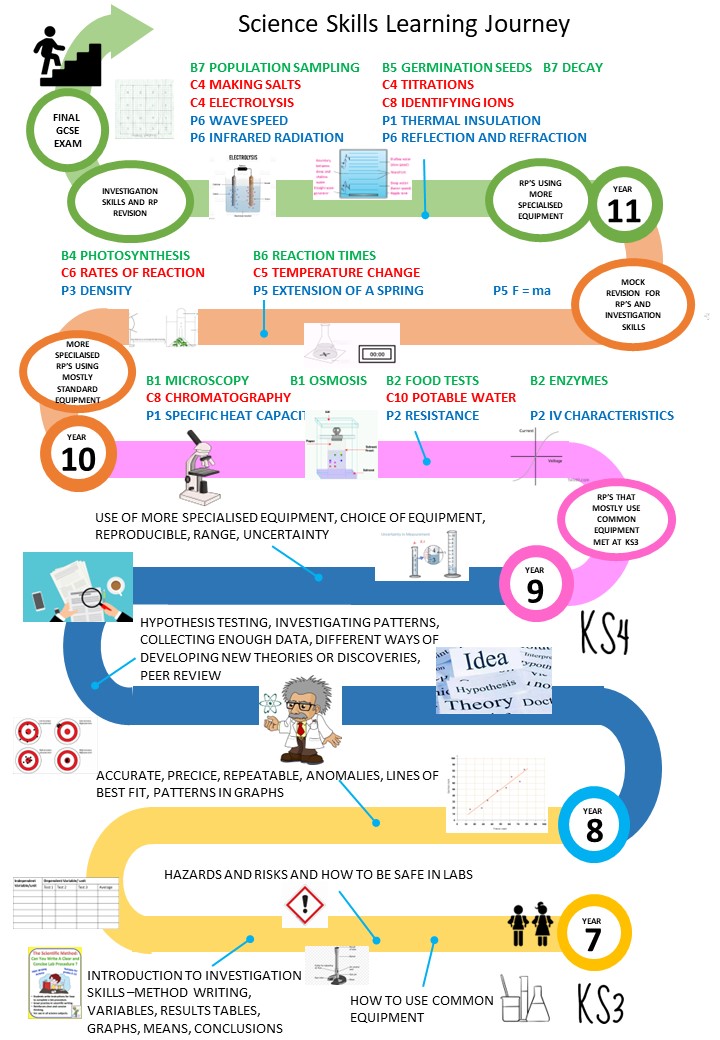
What is Science like at Guilsborough?
Please watch our short video to see what studying Science at Guilsborough is like.
Where will Science take me past Year 11?
SIXTH FORM
All students at Guilsborough study all the science up to GCSE level. For many they will obtain a Combined Science GCSE which combines all the marks on their biology, chemistry and physics papers and turns them into a dual award worth 2 GCSEs. Whilst some of our students study the three sciences separately and obtain three individual GCSEs in Biology, Chemistry and Physics.
If students want to study these subjects further we offer
BTEC Applied Science (a combination of parts of all 3 A levels)
Having a good understanding of science also helps students who follow A level Maths, Geography and PE.
CAREERS
There are hundreds of distinct jobs that require a good understanding of science, even if they do not require a scientific degree. The following is a short list of some jobs where good science qualifications are vital.
Doctor, vet, dentist, biochemist, botanist, marine biologist, pharmacist, physiotherapist, radiographer, forensic scientist, climatologist, geologist, synthetic chemist, engineer, astronomer, nuclear physicist, food scientist.
After studying sciences at A level many of our students go onto degrees that enable them to follow these careers. Amongst the most popular in recent years are Medicine, Biomedical science, Astrophysics and Engineering.
Useful resources to support learning in Science
These resources are useful for students to help consolidate knowledge learnt in lessons and to aid revision ;


